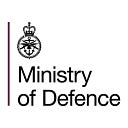To the edge and back: A soldier’s story
Six months ago, Corporal Jakob Ricketts of 16 Medical Regiment in the British Army, couldn’t imagine any future for himself. Now, he has earned a promotion while helping people in the Falklands deal with Covid-19. Here Jakob shares his personal mental health journey and how his Defence colleagues helped him through.
“My decline started around age 14. I was the sole witness to my father’s death and was unable to truly process what had happened. I bottled it up for the following thirteen years. During university, I had a large number of friends commit suicide in unlinked events, and I continued to keep those feelings bottled up.
Then, on a night out, I was attacked and left for dead in London. The attack left me scarred emotionally as I was unable to find a way to not blame myself for what happened.
I began to drink to silence my own thoughts and emotions. It led to the breakdown of relationships and eventually made me numb to other people.
Toward the end of 2019, I made an attempt on my life and was sent to Peterborough Hospital for treatment.
Supported by colleagues
Initially, my decline was spotted by a close friend at work, who reported it to an officer I was working directly under. This officer went above and beyond to make sure I wasn’t drinking in the mornings and helped me start the process of getting myself back on track. She truly helped me unpick everything as well as getting me in front of the medical chain.
Once I was in hospital, I was immediately contacted by a friend from my unit, and within days of admission, my Staff Sergeant Major came to the ward to help me get back in touch with the outside world.
When I was discharged, my unit let me control my return to work. I could work reduced hours, not in uniform, and was able to walk away when I needed to.
They offered me Safe Spaces so if I had any triggering moments, I was able to hide, regroup, and come back or walk away. I was moved into a less stressful department and given no pressure to speed up at all.
DCMH (Department of Community Health) also offered fast and fantastic treatment. They gave me weekly face to face sessions when I was available, and phone consultations if I wasn’t. They gave me the tools to build myself back up, and carry back on a path of recovery.
Working back to normality
Earlier this year, I got a phone call that I was going to be deployed to the Falklands — 8000 miles away from everyone I knew. I was initially deployed as part of Op Broadshare, the UK Government’s response to Covid-19 in the Crown Dependencies amongst the Commonwealth.
We were sent out there as a team of six and I was deployed alongside an officer who was incredibly empathetic towards me. They had been through a very similar process themselves and having someone out there who I could relate to during this situation was a really big help.
When our quarantine ended and we were allowed to integrate more with the local population that we were working alongside, I put a lot of effort into working on logistics on the island and across the health service of the South Atlantic islands.
I worked for three months with the local government to try to modernise services. And that was when my unit recognised my work and promoted me to the acting rank of Corporal, which has now been made permanent.
After I got back to the UK I realised just how far I’d come in such a short period of time. I’ve been deployed 8000 miles away, my work has been celebrated, and my unit hierarchy seem to be really happy with my level of output. From start to finish, everything happened so quickly and I recently had my final session with DCMH to discuss the path I have taken, and where we hope I end up going.
To someone who is worried about speaking up: it’s hard, and easier said than done. But going from being unable to leave my flat due to fear of the outside world and what might happen to me, to deploying, happened because I took a leap of faith.
I had people around me who I felt I could trust and I will be forever grateful of everyone who got me out of where I was. So talk to someone you trust, whether it’s a mate, someone at work, family or even a helpline, just try to talk. Just know that this can affect any one of us.
